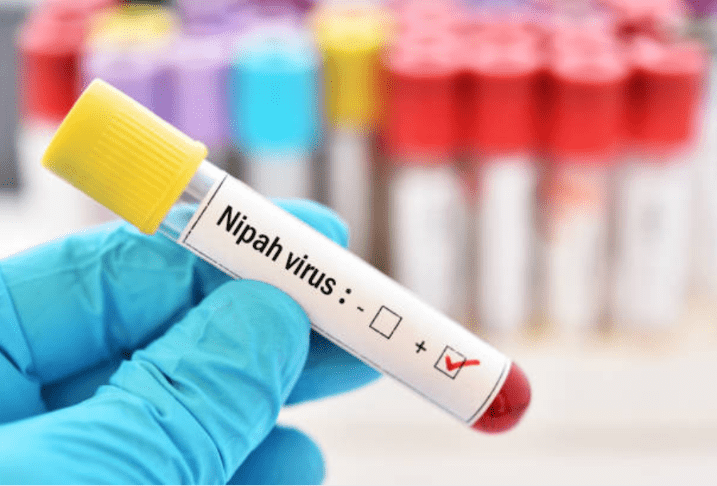A 14-year-old boy from Kozhikode district, Kerala has been tested positive for Nipah Virus infection, dies of cardiac arrest.
Updated on 21 Jul 2024, 9:07 PM IST

Nipah virus testing shows positive, credit: istock
Nipah Virus Infection
Last year, the Ministry of Health and Family Welfare, Government of India was reported two deaths in Kozhikode, Kerala from Nipah infection.
History:
The first Nipah Virus outbreak was reported in South India in May 2018 from Kozhikode district, Kerala. The report said that 17 individuals were dead within 1st Jun of 2018.
Lung cancer: Are non-smokers at more risk? major risk factors – (2024)
How is the virus spread or transmitted?
Nipah-virus infection, a zoonotic illness, is spread to humans through contact with infected animals such as bats and pigs (most common), food contaminated with saliva, urine & excreta of infected animals or direct contact with infected individual.
Symptoms:
- Fever: High grade & persistent fever
- Respiratory symptoms: cough, shortness of breath, and respiratory distress.
- Headache
- Dizziness: Lightheadedness or feeling that you or your surroundings are spinning or moving.
- Drowsiness or altered consciousness
- Nausea & vomiting
- Seizure
- Muscle pain
Sometimes it may fatal due to acute respiratory symptoms and encephalitis (inflammation of the brain).
Treatment:
In the absence of vaccine for Nipah-virus, to prevent transmission of disease or to reduce infection in people, should raise awareness of risk factors of Nipah virus infection such as –
Reducing the risk of bat to human transmission: Before consumption –
- Freshly collected date palm juice should be boiled
- Fruits should be thoroughly washed and peeled
- Fruits with signs of bat bites should be discarded.
Reducing the risk of animal-to-human transmission: Gloves and other protective clothing should be worn while handling sick animals (farming pigs, horses, and domestic and feral cats) or their tissues and during slaughtering and culling procedures.
Reducing the risk of individual-to-individual transmission:
- Unprotected physical contact with Nipah virus infected people should be avoided.
- Regular hand washing should be carried out after caring for or visiting sick people.
- Health care workers should always implement infection prevention and control standard precautions as well as contact and droplet precautions when providing care.
Infection prevention and control: Patients who are suspected of Nipah virus
- Should be isolated in well-ventilated single rooms with dedicated patient equipment and toileting.
- Should not be placed in cohort rooms.
- Placement of a patient in an airborne isolation room when aerosol-generating medical procedures are performed.
- If airborne isolation rooms are not available, a well-ventilated single room with windows open.
- Cleaning (soap & water) and disinfection (0.5% sodium hypochlorite) of all surfaces in patient rooms.
- Health facilities should be equipped with enhanced water, sanitation and hygiene services.
- Safe waste management practices should be adhered to by the health care facilities.
Some infected cases have been seen in India primarily in the states like west Bengal and Kerala. Regular monitoring, isolation, raising awareness and educating the people are the only way to prevent further spread of the virus.
Know more about Nipah Virus.

